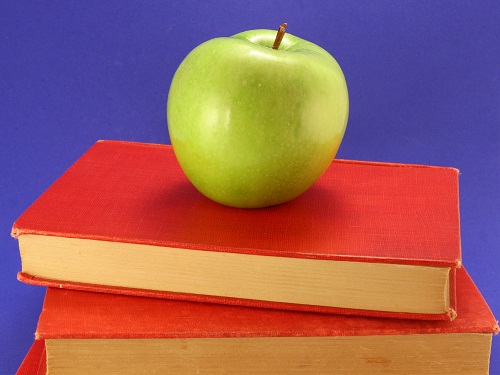Thank you for joining the Partners in Health and Wholeness Book Club. You can officially sign-up here. Through it, we hope to engage people of faith in discussions over why our health matters. Our current choice of reading is “Animal, Vegetable, Miracle: A Year of Food Life” by Barbara Kingsolver. We are posting updates through the PHW Facebook page, but our PHW blog page has the discussion posts in full with responses from staff. Just look for the picture of the apple on top of the books and you will find past Book Club entries.
This chapter, entitled, “Celebration Days” addresses a topic that many of us may have been struggling with over the past two months. How do we make it through the holidays without gaining weight? How do we stay healthy through this hectic time full of sugary treats? If you’ve been working hard to get healthier, the holidays can be daunting. How do we get through without backsliding? Are we failing if we indulge in holiday treats?
Now, with New Years’ Day behind us, we may be ready to recommit to our healthy lifestyle again and as Kingsolver puts it, “Resolve to become a moral person again.” She points out the flaws in our reasoning when we stigmatize the enjoyment of food. It is true that food anchors many of our traditions, and we need to offer a critique of the ways in which that is harmful (e.g. believing that consuming food is the only way to celebrate).
We need to also realize the harmful impact from our beliefs about food and body image in our country, which often result in powerful feelings of guilt and shame. Kingsolver points out that, “most of America’s excess pounds were not gained on national holidays. After a certain age we can’t make a habit of pie, certainly, but it’s a soul-killing dogma that says we have to snub it even on Thanksgiving.” She continues, “Good people eat. So do bad people, skinny people, fat people, tall and short ones. Heaven help us, we will never master photosynthesis.” She goes on to express that, “planning complex, beautiful meals and investing one’s heart and time in their preparation is the opposite of self-indulgence.” Preparing meals can itself be “nourishing and soulful.” Hours of preparation results in strengthening family ties, sharing family stories and traditions, not to mention burning calories!
Kingsolver shows us the beauty of devoting time and love to food preparation. We are a culture of constant indulgence and little effort put into preparation. The opposite, as Michael Pollan addresses in his new book, “Cooked,” is lengthy preparation times and moderate consumption. As an example, he talks about the intense process that goes into preparing French fries at home — from cutting the potatoes, to the double frying required. Most people are not going to go through all that trouble every day. So he reasons, “Eat whatever you want, as long as you make it yourself.” Now, I need not to bake cookies on a daily (or even weekly) basis, because if they are in the house my husband and I will eat them. However, there is much more involved to make cookies from scratch than to buy a pack from the grocery store. So, in my experience, making a commitment to only eating homemade sweets (or “junk” food) does lead to more moderate indulgence. This same effect happens when committing to only fair trade coffee or chocolate. Since it is more expensive, we often buy less to fit these special items into our food budget.
So, do we keep our holiday season indulgences in check by making them ourselves? Or might this add to our stress? Many of us are so distracted and caught up in the hustle and bustle of getting ready for Christmas that we often miss out on Advent. We jump straight to Christmas and then to the new year: a season of goals, detox, increased gym membership, and determination.
Kingsolver offers a picture that might sum up the beauty of Advent: after eight months of no citrus, Kingsolver watches as her daughter Lilly eats a tangerine. But first, Lilly hugs it to her chest and tenderly peels it. Kingsolver thinks, “Lucky is the world to receive this grateful child.” Then she says the line that I thought sermon-worthy, especially during Advent: “Value is not made of money, but a tender balance of expectation and longing.” Advent should also challenge us to work on our patience and our willingness to wait, even after the Advent and Christmas seasons are over. This concept might just help us to find a more healthy and whole way of being, especially when applied to food. Finding this balance is a gift, and looking for this balance is a calling — one we are called to walk in day by day, in every season, and all of our life journeys.
1. Did you achieve or maintain your health goals during the holiday season? What did (or could have) helped you achieve them?
2. Are you able to find a balance of indulgence and moderation? What helps you do this?
3. Have you ever experienced the type of value Kingsolver describes as, “a tender balance of expectation and longing?” How does this apply to your relationship with food? What about to other areas of your faith journey?

